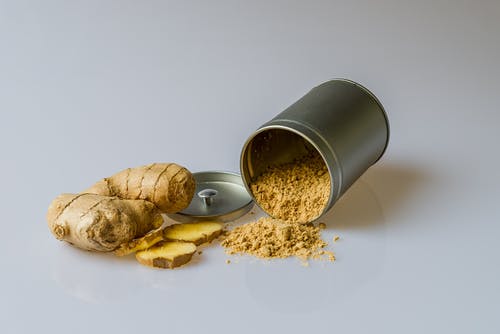by: Manmohan Singh
The significantly deteriorating climatic conditions as well as the rush of modern life have made it difficult to live a healthy life effortlessly. It has become important now, more than ever, to strive harder and keep our body, mind, and soul in the right condition at all times.
We often tend to forget how our existence, our physical being, is a spellbinding work of nature and it is no one’s but our responsibility to take full care of it in all ways possible. The better you take care of yourself, the better you perform in your life and the sooner you will actualize your life goals.
The age old practice of Yoga, the key to all sorts of life rejuvenation, is something that you can easily bring into your life. A regular practice of yoga can positively change the entire course of your life. There are multiple ways to incorporate it. You can find assistance online, you can read books about it and for even better and authentic results, you can look up various training schools.

Yoga retreat in Nepal is one of a kind and is a great place for you to learn yoga. It not only has specialized schools and teachers for assisting you with yoga training, yoga teacher training and yoga retreats, but also has the perfect ambience and landscape to help you delve more into the realm of tranquility and peace.
While you’re at it, a combination of yoga and Ayurvedic herbs can make your body as fresh as new. The Ayurvedic scriptures offer more than 600 herbal formulas which can help you maintain a healthy body in all senses and form. We will discuss below 6 such herbs, which when combined with yoga, can help you stay fit and healthy.
Neem
Also known as the ‘Indian Lilac’, Neem is considered to be one of the strongest and an extremely beneficial herb. The extract of the herb is taken from the seeds of the tree and has a great number of uses and properties, ranging from being a pest repellant to treating chronic illnesses.
It has antioxidant and anti-inflammatory characteristics which help in removing toxins from your body and therefore detoxifies it. It also has anti-microbial properties which help in fighting against various types of bacterial, viral or fungal issues.
Neem can be consumed in different forms depending upon the purpose it has to serve. The most common form is either oil or capsules.
Ashwagandha
The name Ashwagandha in Sanskrit means “the smell of horse”. This points to its unique smell as its medicinal properties helps in increasing strength.
The Ashwagandha plant is a small shrub and the Herb’s extracts are mostly taken from its roots and leaves.
This herb facilitates stress hormone balancing, fights fatigue and induces energy. It is also grouped under the category ‘adaptogen’ which makes it adaptable to the needs of the body. You can take this in the form of powder or tonic, depending upon your convenience and dosage.
Brahmi
Named after the Hindu god Brahma, this herb is famous for the effects it has on the human brain. It has antioxidant and neuroprotective attributes that help in balancing serotonin level. It also regulates the balance of the mind thus making it more efficient in its cognitive functioning while also at the same time regulating the mood. It also offers protection against neurodegenerative diseases.
Cumin
Cumin plant grows close to the ground and has extremely beneficial medicinal properties in its seeds. It has anti-inflammatory, antiseptic as well as antioxidant properties which facilitate better digestion. The antiseptic abilities also allow fighting away with any kind of unwanted bacteria or parasites. The detoxifying characteristics combined with the above mentioned attributes facilitate weight loss and keeps you fit.
Turmeric

Turmeric is one of the most common herbs found in almost every Indian household. There is nothing that this herb can’t do. The chemical substance curcumin gives it anti-inflammatory and antioxidant properties. Turmeric is famous for being one of the best antiseptics and is extremely good for your skin. It rejuvenates and brings a glow to it. It also improves digestion and helps with sinusitis and normal cough & cold.
Amalaki
Amalaki or Amla is considered to be the food where ‘prosperity resides’, and is considered to be extremely rich with nutrients and benefits. It has rich proportions of Vitamin C and has antioxidant properties. It helps in boosting the immune system and also betters the digestive system. Not only that, but it also helps in strengthening the liver, which in turn purifies the blood and removes all accumulated toxins from the body.
Now that you know about these ayurvedic herbs in detail, it is time for you to usher them into your life. You need to keep in mind that no one thing helps you stay fit, healthy and strong. You need to support your ayurvedic intake with regular practice of yoga to get the most out of it.
As mentioned earlier, there are various schools all across the country which can assist you with Yoga and Ayurveda, Nepal being one of the best. When you’re there, you will not only learn the best of Yoga and Ayurveda but will also get to see the rich heritage and do adventure activities like Nepal trekking tours.
Think no further and bring Ayurveda in your life.
Author Bio : Manmohan Singh is a passionate Yogi, Yoga Teacher and a Traveller in India. He organize 200 hour Yoga Teacher Training in Rishikesh. Manmohan Singh conducts Yoga Teacher Training in India in different cities. He loves writing and reading books related to yoga, health, nature, Himalayas and Trekking in India.











More Stories
Yoga Routines For You…
Ashtanga Yoga: Everything You Need To Know
4 Key Benefits of Doing Aqua Yoga